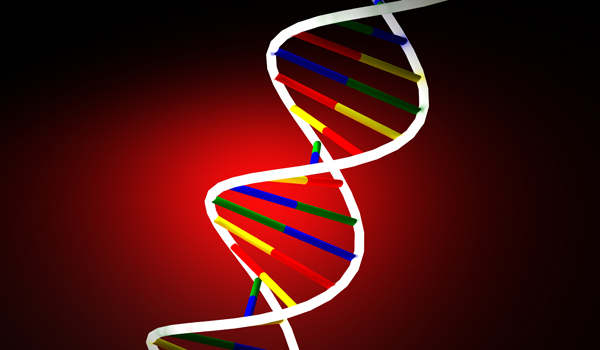
The Supreme Court heard oral arguments today (April 15) in a case to decide whether human genes can be patented.
The court will decide whether Myriad Genetics, a biotechnology company, has the right to patent human genes — in this case, two gene mutations called BRCA1 and BRCA2 that increase breast cancer risk, which the company detects using a diagnostic test. Opponents of Myriad say the gene sequences are made by nature, so they shouldn't be patentable. Supporters argue that the patents are valid because they are only held on sequences stored in DNA artificially produced in the lab, not the naturally occurring sequences in the body.
The decision could have broad implications for biotechnology, experts said.
"If the Supreme Court strikes down all of Myriad Patent's claims and then has a broadly worded opinion that isn't careful, you could have real ramifications going through biotech," said Oskar Liivak, a patent law professor at Cornell Law School who focuses on biotechnology.
From synthetic biology to whole-genome sequencing, here are five ways that the Supreme Court ruling could affect biotechnology.
1. Roadblocks to discovery
Opponents of the Myriad Genetics patents say the patents have prevented companies from developing more accurate tests for the BRCA genes. [7 Diseases You Can Learn from a Genetic Test]
Sign up for the Live Science daily newsletter now
Get the world’s most fascinating discoveries delivered straight to your inbox.
The argument is that "they have tests that have holes in them, but there's no way to try and build a better test, because they own all the essential building blocks on which such a test would be based," said Aaron Kesselheim, a professor at Harvard Medical School.
The gene patents also prevent people from getting a second opinion on test results, and deter researchers from studying the genes in the lab, opponents argue. If Myriad Genetics' patent is upheld, these roadblocks would remain in place.
2. Limits in place
Right now, the most outlandish scenarios aren't on the table.
In a 1980 ruling, the Supreme Court said laws of nature, abstract ideas and physical phenomena couldn't be patented — so discovering a rare cheetah in Tanzania or finding uranium below the Earth wouldn't be patentable.
People can't be patented, either. Gene patents only apply to copies of the gene sequence after it's been artificially changed in the lab.
"You can't patent a person's DNA as they sit there on the beach and watch the waves," Kesselheim told LiveScience.
3. Whole genome sequencing
But once you get into other technologies, the legal terrain gets murkier.
Somewhere between 20 percent and 30 percent of the human genome has been patented, Liivak said. If gene patents are broadly upheld, a company that wants to sequence someone's entire genome, rather than just a few genes, could in theory have to pay a fee, or "toll," to the patent holders for each of those patented genes, Liivak said. [Unraveling the Human Genome: 6 Molecular Milestones]
The worry is that "full-genome sequencing is going to be prohibitively expensive if along the way you have to pay these tolls," Liivak told LiveScience.
4. Effects on epigenetics
The findings could also have implications for epigenetics, which are chemical changes attached to DNA that determine whether or not genes are expressed. If, for instance, someone found out new information on how epigenetic changes turn patented genes on or off, it's still not clear whether they would need to pay the original owners of the gene sequence to develop that technology, Liivak said.
5. Making cancer drugs
Cancer technology could also be affected by the ruling. If the Supreme Court strikes down all gene patents using very broad language, then other types of biologically inspired molecules could also be affected. For instance, many cancer therapies are based on antibodies that are produced by the body's immune system. To make them, drug companies may coax the immune system of an animal to produce antibodies that fight certain cancer molecules. They would then fish those antibodies out of the host organism and make small or big tweaks to turn them into cancer drugs.
If the Supreme Court language is broad enough, some of the steps in that process might need to be scrutinized, as they may not be protected by patent, Liivak said.
6. Synthetic biology
More speculative techniques could also be impacted. In synthetic biology, scientists try to create new organisms with either completely novel DNA sequences or even from non-DNA based molecules. If the Supreme Court strikes down gene patents very broadly, some parts of that process could be hard to protect with patent law, Liivak said. In turn, that could stifle development of commercial synthetic biology.
Follow Tia Ghose on Twitter @tiaghose. Follow LiveScience @livescience, Facebook & Google+. Original article on LiveScience.com.

Tia is the managing editor and was previously a senior writer for Live Science. Her work has appeared in Scientific American, Wired.com and other outlets. She holds a master's degree in bioengineering from the University of Washington, a graduate certificate in science writing from UC Santa Cruz and a bachelor's degree in mechanical engineering from the University of Texas at Austin. Tia was part of a team at the Milwaukee Journal Sentinel that published the Empty Cradles series on preterm births, which won multiple awards, including the 2012 Casey Medal for Meritorious Journalism.









